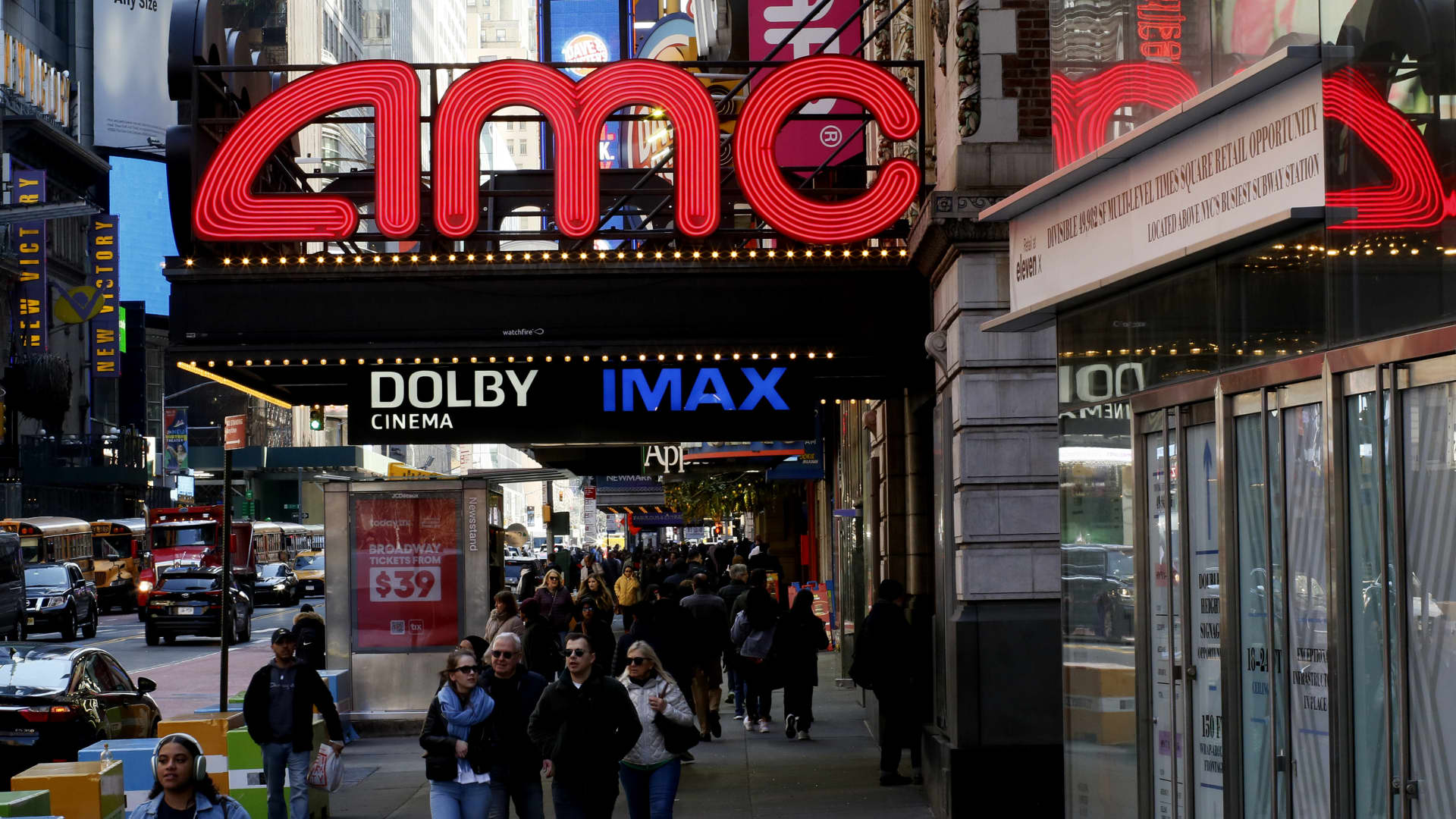AMC Entertainment shares plummeted more than 20% on Tuesday, slipping to a new 52-week low of $2.46 per share, as investors brace for a stock conversion later this week.
On Friday, the movie theater chain’s preferred equity units, dubbed APE shares, are set to be transformed into common stock just one year after they began trading on the New York Stock Exchange.
These preferred equity units are a workaround, of sorts, and free AMC up to sell additional units of stock after investors who feared dilution rejected the company’s efforts to issue additional stock last year. AMC raised billions during the Covid pandemic selling new stock, which aided the company in paying off its debts and staved off bankruptcy during a time when movie theaters were closed or had limited product to screen to audiences.
AMC also is planning a 10-to-1 reverse stock split of its common stock on Thursday.
The company’s authorized share count will increase to 550 million from a prior post-reverse split count of 52.5 million, allowing AMC to issue more than 390 million shares, wrote Eric Handler, managing director at Roth MKM, in a research note published last week.
The share upheaval follows significant back-and-forth: The movie theater chain was sued in February for allegedly rigging a shareholder vote that would allow it to convert preferred stock to common stock and issue hundreds of millions of new shares. A revised stockholder settlement, in response to that lawsuit, was approved by a Delaware judge last week.
Shares of the company have nearly halved since it was announced on Aug. 14 that the APE shares would be converted.

“The continued decline in AMC shares … is likely due to investors focusing on the strong possibility that AMC begins issuing large amounts of equity to address the debt balance,” Eric Wold, an analyst at B. Riley Securities, told CNBC on Tuesday. “While this is expected, I think this overlooks the opportunity for management to also utilize that access to capital and the still-elevated valuation multiple to pursue additional acquisition and expansion opportunities outside of the exhibition space.”
Wold sees the stock conversion as a way for AMC to weather the global exhibition industry’s prolonged post-pandemic recovery as well as any future impacts from the ongoing writer and actor strikes in Hollywood.
Current projections from Wold show AMC is unlikely to move into positive free cash flow territory until 2025, so having additional liquidity is necessary for the company’s immediate future.
Wold currently holds a $4.50 price target for the stock, on the high end of analysts who cover AMC.
Meanwhile, Roth MKM’s Handler is on the opposite end: his price target is just 50 cents.
“My negative view towards the shares is really a valuation call,” Handler said. “We continue to believe the company’s shares are trading at an irrational valuation.”
Handler noted that AMC would need to generate nearly $1 billion in adjusted EBITDA to justify its current market capitalization, a figure that is 78% higher than Roth MKM’s forecast for 2024 and 5% higher than the company’s all-time high EBITDA of $929 million, generated in 2018.
Still, liquidity concerns have been alleviated for now, Handler said.
